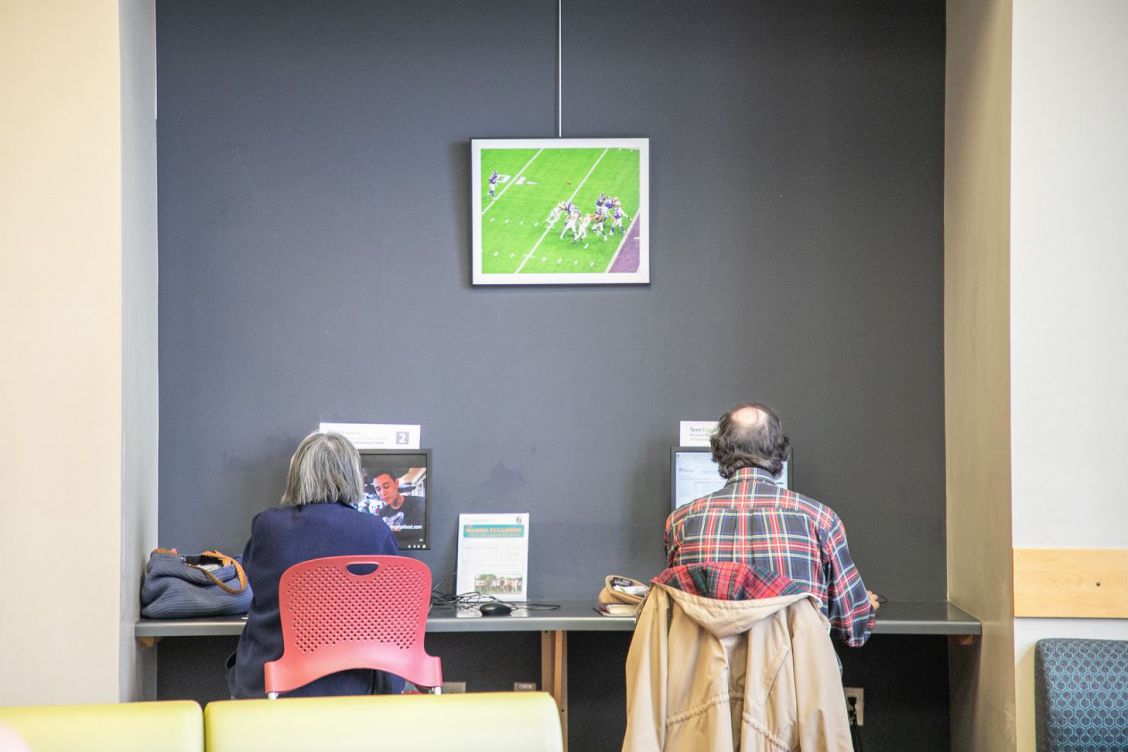Digital Inclusion
Technology is changing rapidly and altering the ways residents expect to interact with their government. The City of Madison Information Technology (IT) department is committed to creating opportunities for residents to access City services and engage in City government more comfortably, securely and equitably through technology.
The Digital Divide
As technology evolves, resulting digital divides can prevent access to and adoption of tools for using it safely and effectively. The National League of Cities (NLC) defines the digital divide as the gap between individuals who have access to computers, high-speed (broadband) internet, and the skills to use them comfortably, and individuals who do not. Across the country, the digital divide disproportionately affects people of color, Indigenous peoples, households with low incomes, people with disabilities, people in rural areas, older adults, and others (per the National Digital Inclusion Alliance). This gap shows up in various ways in our community, including civic participation, employment, learning, public transportation, and access to other essential services and resources.

The Road to Digital Equity: Digital Inclusion
Digital Inclusion is a key strategic priority for the City of Madison Information Technology (IT) department. A multi-year Digital Cities Survey Winner, the City strives to improve internet connectivity, digital engagement tools and practices, user experience, accessibility, and language access for Madison residents. It is also our goal to connect our residents, policymakers and staff with internal and external resources that support their digital needs and transform their lives.
Our Madison's Digital Inclusion Ecosystem
To connect City residents, policymakers and staff with resources, we are currently mapping the City of Madison's Digital Inclusion Ecosystem. The National Digital Inclusion Alliance defines a digital inclusion ecosystem as, "a combination of programs and policies that meet a geographic community’s unique and diverse needs." This includes programs and policies that address all aspects of the digital divide and collaboration on digital access/adoption solutions among government, community partners and community members. If you are a local community or business partner offering low-cost or free broadband, digital literacy training, or device access/support, please reach out to digitalinclusion@cityofmadison.com and we will add your services to our list of local resources.
Programs & Initiatives
Through the years, our City launched several inquiries, programs, and initiatives to enhance digital equity. While this list is not exhaustive, it represents our roadmap for digital inclusion.
- City of Madison digital inclusion ecosystem mapping project
- City of Madison Information Technology Digital Inclusion Efforts Report
- Affordable Connectivity Program community engagement
- Madison Public Library digital literacy and computer skills training.
- Benefits of Broadband Competition Report released
- DANEnet/ Information Technology/Madison Public Library Computer Fix-It Clinics
- Fiber-to-the-Premises (FttP) feasibility study and resulting implementation plan
- Madison United Fiber Network (MUFN) collaboration
Low-Cost Home Internet Access
The Affordable Connectivity Program (ACP) is a federal program that helps low-income families afford internet service at home. ACP participants receive up to $30/month discount on internet service and a $75/month discount if your household is on qualifying tribal lands. Participants can also receive a one-time discount of up to $100 for a laptop, tablet, or desktop computer (with a co-payment of more than $10 but less than $50).
Participants qualify:
- Based on household income.
- If you, your child, or a dependent participate in certain government assistance programs or receives a Lifeline benefit.
- If you qualify through a participating internet provider’s existing low-income program.
Learn more or enroll today by visiting the Wisconsin Public Service Commission's Affordable Connectivity Program (ACP) website.
Don’t currently have email, computer or Wi-Fi access to enroll?
You can contact the ACP Support Center by phone at (877) 384-2575.
The Madison Public Library offers free computer and Wi-Fi access. Call (608) 266-6300 for a list of library locations and computer use hours.
Need bilingual support for low-cost internet? You can contact the ACP Support Center by phone at (877) 384-2575.
The Affordable Connectivity Program is administered by USAC with oversight from the Federal Communications Commission.

